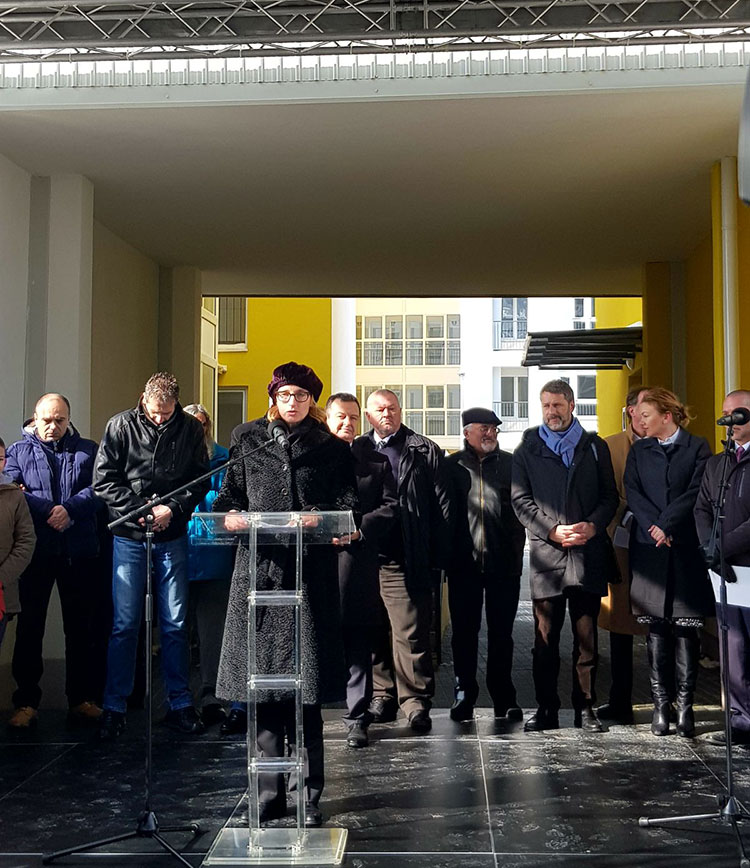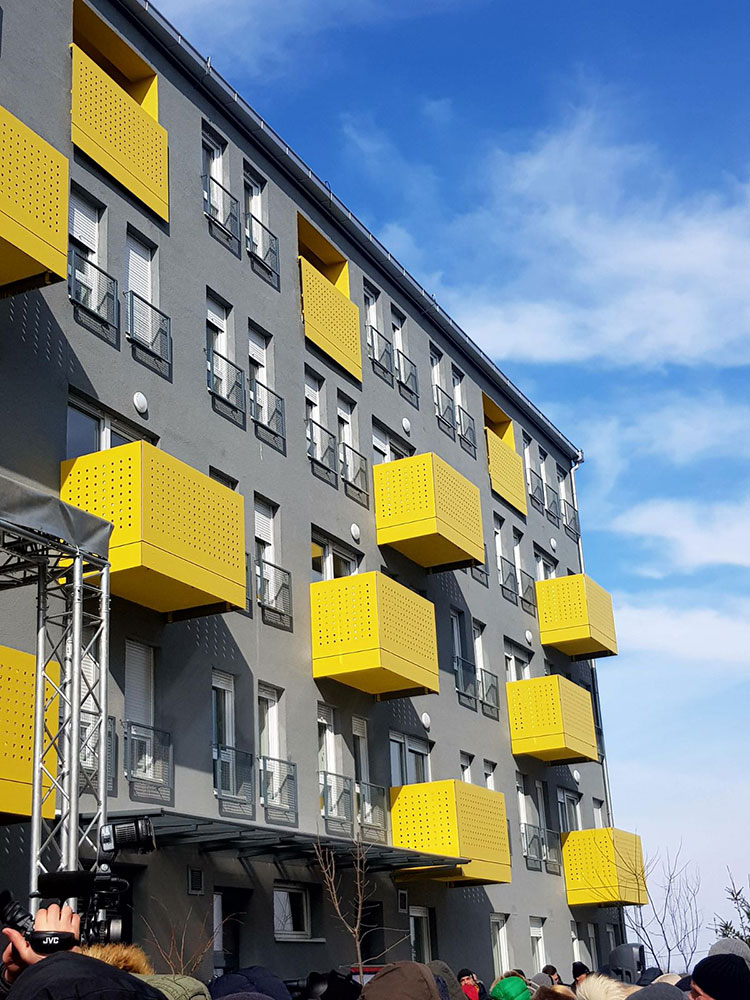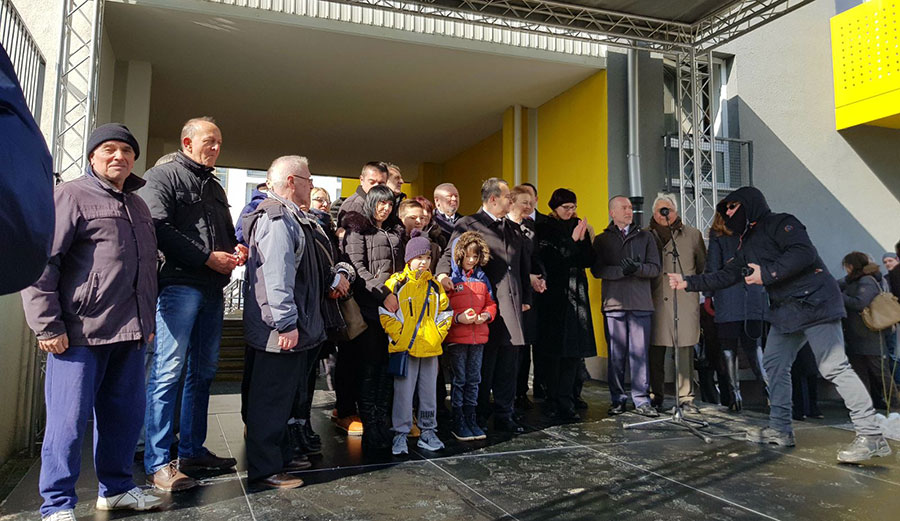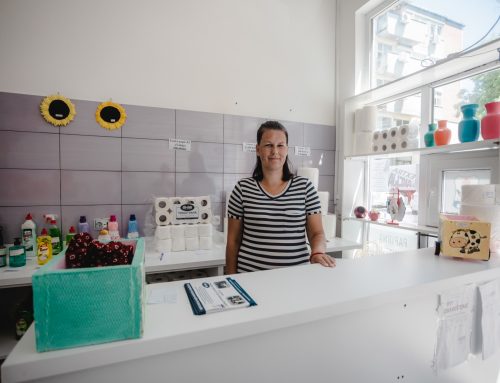Keys to 235 apartments were handed over to refugees from Bosnia and Herzegovina and Croatia today in a ceremony in Ovca within the Regional Housing Programme
Serbian Foreign Minister Ivica Dacic said that “the value of Ovca project stands at EUR9.8 million” for which “the funding has been secured through the RHP donor fund, the CoE Development Bank and the budget of the City of Belgrade.”
A statement issued by the Minister’s Office quotes Dacic saying that the third subproject, worth EUR13.6 million, is aimed at beneficiaries living in the territory of the City of Belgrade and will secure housing solutions for over 700 of them.
“In June 2016, I had a privilege to personally hand over 69 contracts for the purchase of rural households, while in September 2017 at the Vuk Stefanovic Karadzic cultural centre, I handed over 320 contracts for the purchase of construction material,” Dacic said, adding that in mid-November 2017, the construction of 270 apartments began in Kamendin, Zemun.
 Mateja Norcic Stamcar, Deputy Head of the EU Delegation to Serbia said that, in cooperation with Serbia, the European Union was actively engaged in finding durable housing solutions for the remaining refugees.
Mateja Norcic Stamcar, Deputy Head of the EU Delegation to Serbia said that, in cooperation with Serbia, the European Union was actively engaged in finding durable housing solutions for the remaining refugees.
“With EUR232 million, the EU can boast of being the biggest donor to the RHP, which makes up for a rather positive example of regional cooperation. Serbia is making good progress in implementing the programme: over 1,500 families have already received durable housing solutions and improved their living conditions,“ Norcic Stamcar recalled and announced that “in the next two years, another couple of thousands of new housing units should be built.“
The Regional Housing Programme was launched in 2012 in cooperation with partner countries – Serbia, BiH, Montenegro and Croatia – with the EU being by far the largest donor in all four countries. The goal of the programme is to provide adequate and sustainable housing solutions for the most vulnerable refuges and IDPs who have fled their homes during the conflicts in former Yugoslavia (1991-1995).
Furthermore, the RHP works to enhance the capacity of national institutions for management of major social or housing programmes aimed at refugees. Being a truly regional programme, the RHP also contributes to improving good neighbourly relations and promotes peace and stability in the region.
In 2018, over 2,000 housing solutions are expected to be offered to RHP beneficiaries in Serbia: nearly 1,000 packages of construction materials, over 500 newly constructed or bought apartments, and some 500 refurbished and rural households.
In 2018, refugees and IDPs in all four participating countries are expected to benefit from a total of 3,500 housing units.
 The RHP is part and parcel of the Sarajevo Process for refugees and IDPs, launched in 2005 during the Regional Ministerial Conference dedicated to the return of refugees. The Process was re-launched in March 2010 at the Belgrade Conference. In November 2011, Belgrade Declaration was signed through which the partners committed themselves to making a contribution to finding housing solutions for the most vulnerable and the displaced.
The RHP is part and parcel of the Sarajevo Process for refugees and IDPs, launched in 2005 during the Regional Ministerial Conference dedicated to the return of refugees. The Process was re-launched in March 2010 at the Belgrade Conference. In November 2011, Belgrade Declaration was signed through which the partners committed themselves to making a contribution to finding housing solutions for the most vulnerable and the displaced.
In April 2012, Sarajevo hosted a donors’ conference with a view to raising money for the RHP. On that occasion, the international community pledged EUR261 million in support of the Regional Housing Programme, EUR230 million out of which was pledged by the European Commission.
In total, the programme is expected to deliver 9,500 housing solutions for 28,000 people.
In early 2018, the total value of approved projects and grants stood at EUR217 and EUR183 million, respectively.




